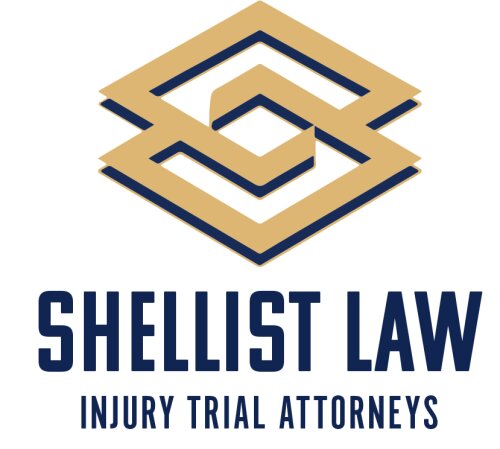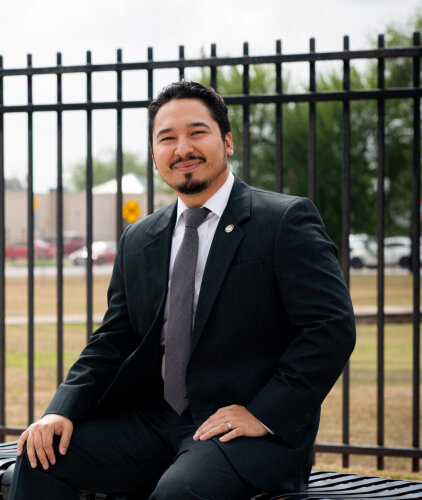Best Arrests & Searches Lawyers in United States
Share your needs with us, get contacted by law firms.
Free. Takes 2 min.
Or refine your search by selecting a city:
List of the best lawyers in United States
About Arrests & Searches Law in United States
The law surrounding arrests and searches in the United States is primarily governed by the Fourth Amendment of the U.S. Constitution, which protects citizens from unreasonable searches and seizures. This legal framework ensures that law enforcement agencies must often obtain a warrant before conducting searches. Arrests must be based on probable cause, meaning that authorities must have a reasonable basis to believe a person is involved in a criminal activity. These laws aim to balance the need for security and law enforcement with the protection of individual rights.
Why You May Need a Lawyer
There are numerous situations where you might require legal assistance in relation to arrests and searches. If you believe your rights have been violated during an arrest or search, a lawyer can help you challenge the legality of the law enforcement's actions in court. A lawyer can also assist if you are facing criminal charges resulting from an arrest, ensuring your rights are protected throughout the legal process. Furthermore, in cases of property being seized, a lawyer can work to resolve the return of belongings or argue against the validity of the seizure.
Local Laws Overview
Laws can vary significantly from state to state, but most adhere to federal guidelines with some specific variations. For example, some states have additional protections against certain types of searches, such as searches of cell phones without a warrant. Moreover, jurisdictions might have different procedures and standards for issuing and executing warrants. It is crucial to understand the specific laws of your state, as they can impact the legality of an arrest or search and the admissibility of evidence in a legal proceeding.
Frequently Asked Questions
What constitutes a "reasonable" search?
A reasonable search is one conducted lawfully, typically with a warrant issued by a judge based on probable cause. There are exceptions, but these are specific and narrowly defined.
Can the police search my car without a warrant?
Police can search a car without a warrant if they have probable cause to believe it contains evidence of a crime, or if the search is incident to a lawful arrest. Other exceptions may apply based on the circumstances.
What should I do if I’m arrested?
Remain calm and exercise your right to remain silent. Ask for a lawyer immediately and refrain from answering questions until you have legal representation.
Do I have to consent to a search?
No, you do not have to consent to a search. If you do not consent, state your objection clearly. This may be an essential factor if the legality of the search is later challenged in court.
When are Miranda Rights required?
Miranda Rights must be read once you are in police custody and before interrogation. If they're not read, your statements may be inadmissible in court.
Can my home be searched without my permission?
Your home can generally only be searched without permission if law enforcement has a warrant. There are exceptions like exigent circumstances where immediate action is necessary.
What is probable cause?
Probable cause is a reasonable ground for suspicion, supported by circumstances sufficiently strong to justify a belief that a person has committed a crime.
What happens if evidence is obtained illegally?
Evidence obtained illegally may be excluded from court proceedings under the “exclusionary rule,” potentially weakening the prosecution's case against you.
How long can I be held in custody without a charge?
You must be charged or released within 48 to 72 hours after your arrest, depending on the jurisdiction, unless extraordinary circumstances exist.
What are "stop and frisk" laws?
"Stop and frisk" laws allow officers to stop a person and search them based on reasonable suspicion of involvement in a crime. The scope of these laws can vary by state.
Additional Resources
Consider exploring the following resources for more information and assistance:
- American Civil Liberties Union (ACLU)
- National Association of Criminal Defense Lawyers (NACDL)
- State Bar Associations
- FindLaw and other legal websites offering free resources
Next Steps
If you need legal assistance, consider the following steps:
- Research and identify attorneys who specialize in criminal defense and have experience with cases involving arrests and searches.
- Schedule consultations with potential lawyers to discuss your case and evaluate your options.
- Gather all relevant information and documents related to your arrest or search to provide to your lawyer.
- Follow your lawyer's advice and maintain communication with them, ensuring they are kept updated on any new developments in your case.
Lawzana helps you find the best lawyers and law firms in United States through a curated and pre-screened list of qualified legal professionals. Our platform offers rankings and detailed profiles of attorneys and law firms, allowing you to compare based on practice areas, including Arrests & Searches, experience, and client feedback.
Each profile includes a description of the firm's areas of practice, client reviews, team members and partners, year of establishment, spoken languages, office locations, contact information, social media presence, and any published articles or resources. Most firms on our platform speak English and are experienced in both local and international legal matters.
Get a quote from top-rated law firms in United States — quickly, securely, and without unnecessary hassle.
Disclaimer:
The information provided on this page is for general informational purposes only and does not constitute legal advice. While we strive to ensure the accuracy and relevance of the content, legal information may change over time, and interpretations of the law can vary. You should always consult with a qualified legal professional for advice specific to your situation.
We disclaim all liability for actions taken or not taken based on the content of this page. If you believe any information is incorrect or outdated, please contact us, and we will review and update it where appropriate.
Browse arrests & searches law firms by state in United States
Refine your search by selecting a state.















